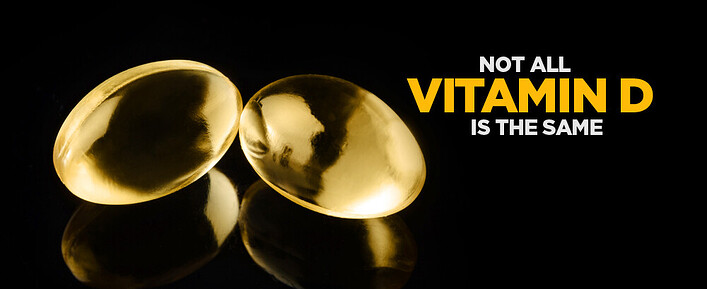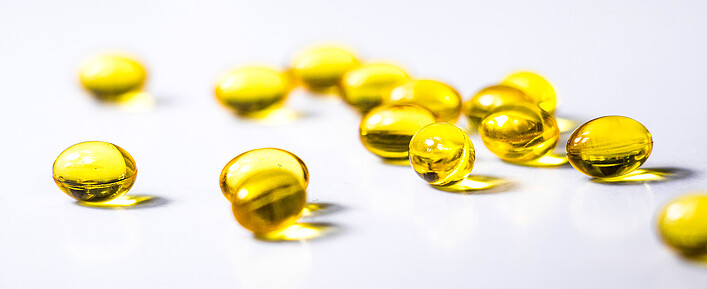Not All Vitamin D is the Same
Some vitamin D supplements work great, some are okay, and one form probably isn't doing much for you. Here's what you need to know.
It's better to be low on cash than low on vitamin D. Deficiencies in this prohormone-like secosteroid affect mental health, physical health, sports performance, and bedroom PRs. And up to 80% of Americans have suboptimal levels.
Word is getting out, though, so vitamin D sales are skyrocketing. Unfortunately, not everyone taking vitamin D is getting the benefits. Let's take a quick look at each form and figure out which one is best for you.
Vitamin D: A Buyer's Guide
Vitamin D comes in different forms, analogs, and derivatives. Here's the rundown:
- Vitamin D2 (Ergocalciferol)
- Overview: Synthesized from ergosterol in plants and fungi.
- Potency: Less potent and less stable than D3.
- Strengths: Vegan-friendly.
- Weaknesses: Lower bioefficacy. Not as effective as D3 at maintaining serum vitamin D levels. Shorter duration of action (cleared more quickly from the body).
- Summary: Skip the D2 unless you're a strict vegan. If you are, you'll need to take about 50% more D2 to make it somewhat comparable to D3. It's better to go with lichen-derived cholecalciferol. It's more expensive than standard D2, but it works almost as well as animal-derived D3.
- Vitamin D3 (Cholecalciferol)
- Overview: Obtained from animal-based sources like lanolin (from sheep's wool) or fish liver oil.
- Strengths: Better efficacy. More effective at raising and maintaining serum 25(OH)D levels. Longer half-life (remains in circulation longer).
- Weaknesses: None really, unless you're vegan, though it's best taken with a fat-containing meal.
- Summary: D3 is your standard form of vitamin D. It works for most people.
- Microencapsulated D3 with Labrasol
- Overview: Made by encapsulating vitamin D3 molecules in solid lipid nanoparticles. Combined with caprylocaproyl polyoxyl-8 glycerides (Labrasol), a pharmaceutical delivery system that enhances the absorption of drugs.
- Strengths: Highest bioavailability. Corrects deficiencies faster. Longest-lasting in the body. Superior absorption, even for people with digestive issues. Doesn't have to be taken with a fat-containing meal. Most shelf-stable.
- Weaknesses: More expensive than standard D3, but you may not need to take it daily.
- Summary: Microencapsulated D3 with Labrasol is the premium form. This is the form we use in D Fix (Buy at Amazon). Each softgel contains 5000 IU. Each bottle contains a 3-month supply if taken daily. Even if you don't use D Fix, make sure your supplement lists "caprylocaproyl polyoxyl-8 glyceride" on the back label.
- Liquid Vitamin D
- Overview: Vitamin D (D2 or D3) dissolved in a carrier oil.
- Strengths: Easier to give to kids. Good for those who can't swallow pills.
- Weaknesses: Precise dosing can be trickier without a good dropper. Typically more expensive than gelcap supplements.
- Summary: Liquid delivery systems are no better than gelcaps in terms of bioavailability. Just make sure they're oil-based and contain D3.
Bonus: Here's how to tell if you're low in vitamin D without a blood test. And check out the new vitamin D guidelines for superior health here.


